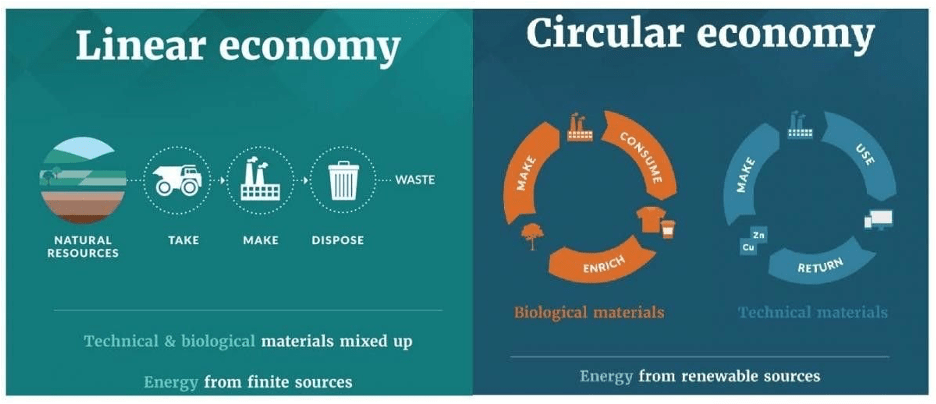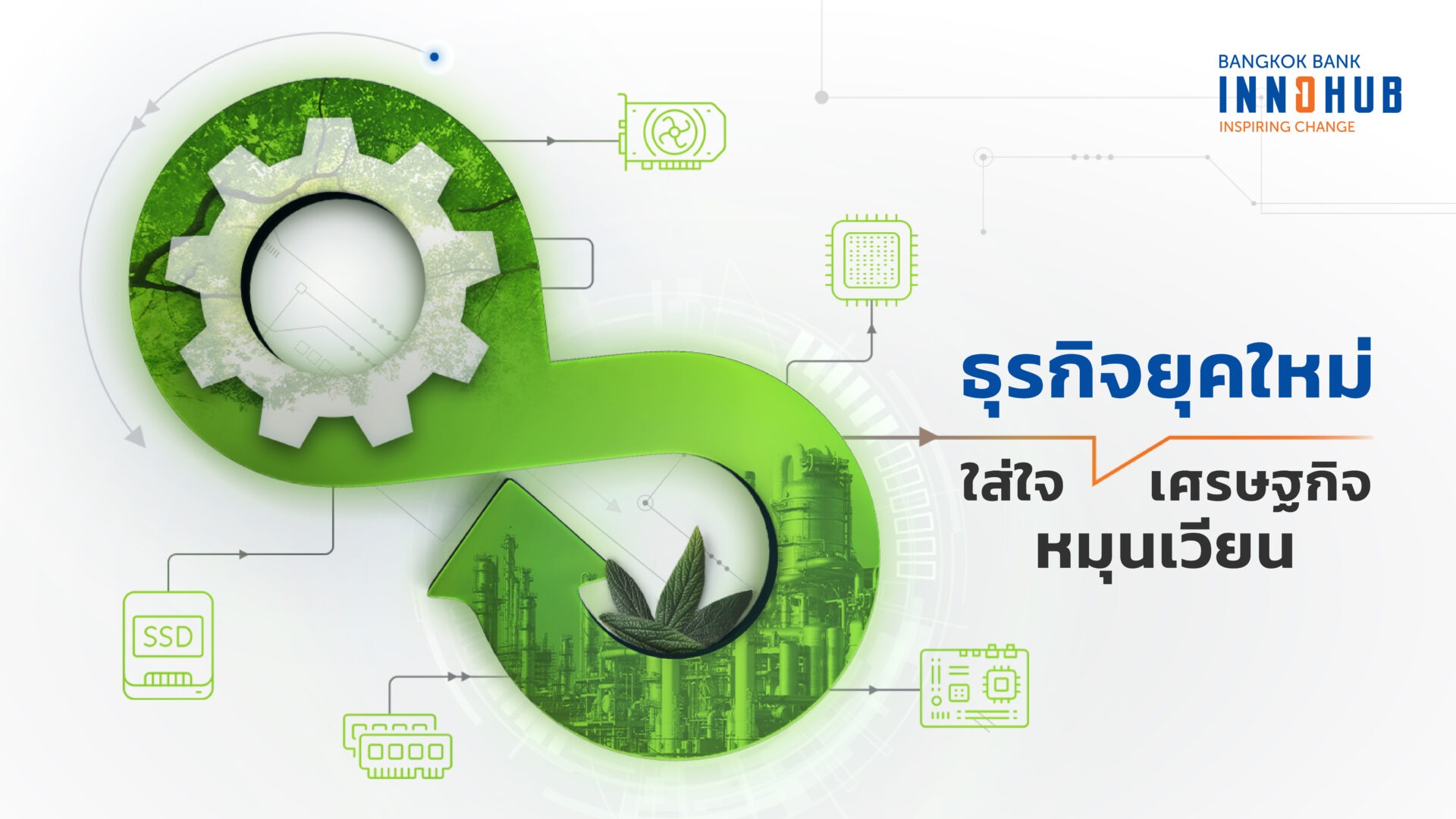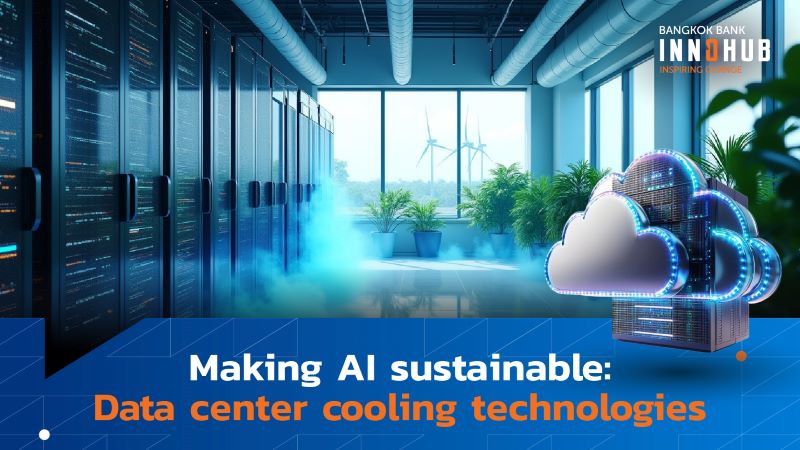The Path Forward is Circular: Tech Companies and the Economy of the Future
As populations increase, economic activity accelerates, and people become wealthier, a fundamental problem confronts us: Can limitless growth be sustained on a limited planet?
The natural world solved this problem long ago. Life has expanded across the land and oceans for billions of years, with living matter recycled and reused endlessly for future generations. Evaporation and rainfall have likewise ensured a constant supply of water in a perfect natural cycle.
Modern production and consumption activities don’t function in the same way. Instead of following a cycle of using and reusing, much of our economy follows a linear trajectory of taking and wasting. The tech sector – in its never-ending quest to release new and improved products –
has turned into one of the worst offenders on this front.

Photo source: www.datadriveninvestor.com/2018/10/19/circular-economy-is-the-solution-for-a-sustainable-future/
Every year, the world produces up to 50 million metric tons of waste from electronic products. Combined, this e-waste would be heavier than the total weight of every commercial airplane ever built and worth an estimated $62.5 billion – more than the GDP of most countries.
A metric ton of e-waste contains 100 times more gold than a metric ton of gold ore. Yet only 20% of it is properly recycled. 80% ends up in dumpsites. Electronics are mostly made from non-biodegradable materials, which when left untreated can release toxic chemicals into the air, ground, and waterways. Moreover, these materials are very costly to mine – not just in terms of money, but labor and energy as well.
For the tech sector to become sustainable, it must embrace a circular economy that eliminates waste and makes full use of Earth’s resources. Fortunately, some tech companies have taken it upon themselves to show the way forward.
Leading the sustainability charge
While Apple has faced criticism for its environmental record in the past, the tech giant has recently taken major steps towards establishing more sustainable processes. Apple uses renewable energy to power its global facilities and a significant portion of its supply chain activities. The company has also allocated $2.5 billion towards green bonds, which support environmental research and innovation projects around the world. Apple’s eventual goal, however lofty, is to use 100% renewable energy across its entire supply chain, and make all of its products without mining new raw materials.
Dutch smartphone manufacturer Fairphone is also showing that circular practices are possible in electronics manufacturing. The company’s Fairphone 3 is highly durable, easy to repair, and made from ethically sourced materials. These efforts have earned Fairphone the highest grade of all the electronics producers evaluated in Greenpeace’s Guide to Greener Electronics.
While tech companies can make significant contributions to the circular economy by simply getting their own houses in order, they can also develop solutions that help non-tech companies.
UK-based startup Winnow makes smart meters that analyze garbage in commercial kitchens to help them reduce food waste.
Dutch company DyeCoo dyes cloths with pressurized carbon dioxide, eliminating the need to use water or additional chemicals. DyeCoo’s innovation can help reduce the massive amounts of toxic waste produced by the textile industry – a major problem here in Thailand as well as many other countries.
As a final example, the Waste4Think project leverages information and communication technologies to improve waste management processes in cities.
Taking our cues from nature
Such initiatives are very welcome, and indeed long overdue. The linear models of the past have led to massive amounts of waste and pollution, and society’s love for electronics has only exacerbated the problem.
If we are to establish a truly circular economy, the tech sector must play a leading role – both by improving its own efficiency, and by helping other sectors do the same. Abandoning old habits will not be easy, but fortunately nature itself provides us with a blueprint for success.




